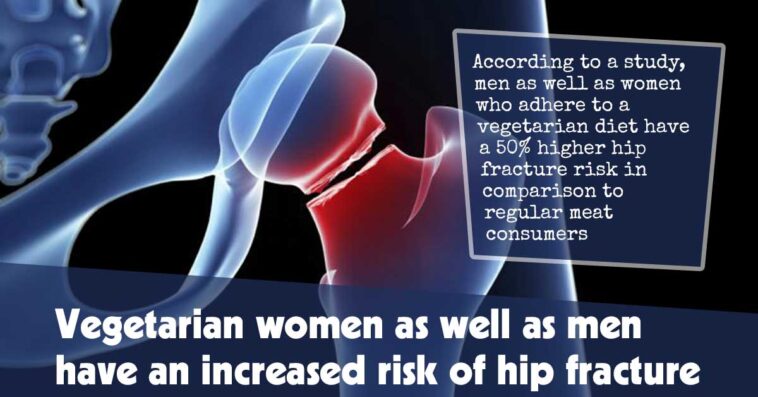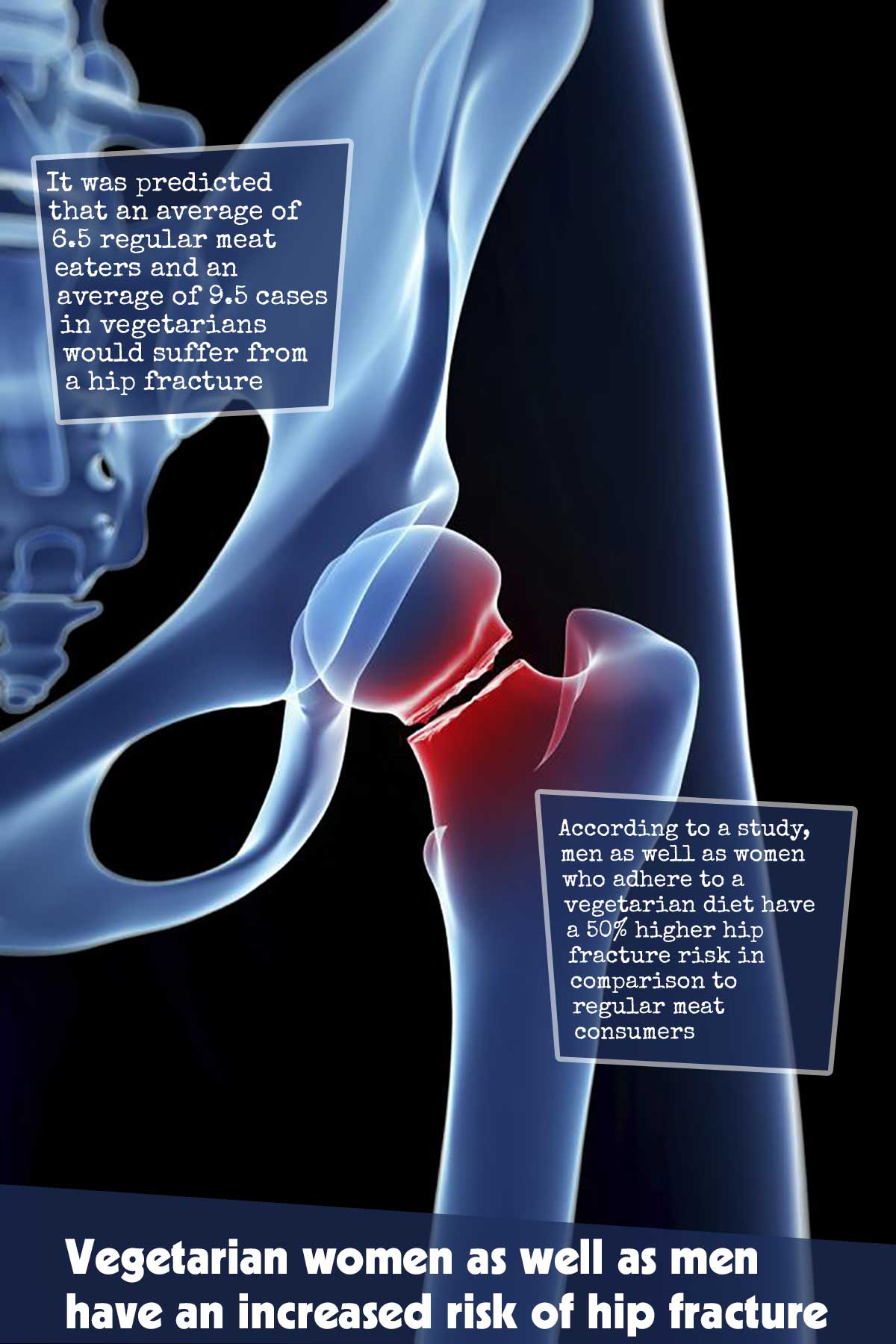According to a study, men as well as women who adhere to a vegetarian diet have a 50% higher hip fracture risk in comparison to regular meat consumers.1✅ JOURNAL REFERENCE
DOI: 10.1186/s12916-023-02993-6
It’s been established that vegetarian women have an increased hip fracture risk, but it’s not clear why, and research examining the effects that a vegetarian diet has on men is inconclusive and small scale.
For this study, data were analyzed on 413,914 men and women and the results indicate that vegetarian men also have an increased hip fracture risk compared to men who regularly consume meat. Some of the factors that could be placing vegetarians at a higher risk of hip fractures were also identified.
The participants were part of the UK Biobank study that had provided diet information and were grouped as regular meat eaters consuming meat 5 times or more each week, or occasional meat eaters eating meat less than 5 times a week, or a pescatarian consuming fish but not meat; or a vegetarian eating dairy produce but not meat or fish.
The data on was linked to hospital records and hip fracture cases were documented in the monitoring period.
The study found:
- There were 3503 hip fracture cases from 413,914 individuals, an average rate of less than 1%.
- Even though the overall risk of experiencing a hip fracture was not high, the relative risk seen between regular meat eaters and vegetarians was significant.
- Vegetarians had a 50% higher risk compared to regular meat-eaters, irrespective of sex.
- No difference was seen in risk between regular and occasional meat-eaters.
- A moderately higher risk of 8% was seen in pescatarians compared to regular meat-eaters, but this was not a significant difference.
It was predicted that an average of 6.5 occasional meat eaters would suffer from a hip fracture, an average of 6.5 regular meat eaters would suffer from a hip fracture, an average of 7 pescatarians would suffer from a hip fracture, and an average of 9.5 cases in vegetarians would suffer from a hip fracture.
Hip fractures are an increasing problem in an aging society, and can lead to incapacitating health conditions and a poor quality of life.
This study reveals that while vegetarians have a 50% higher hip fracture risk compared to meat-eaters, this only translates to 3 more hip fractures/1000 individuals over 10 years.
A vegetarian diet’s health benefits, such as a reduced risk of cardiovascular disease and cancer, might still compensate for any increases in the risk of hip fractures.
The analysis indicates that low BMI might be a significant factor in the greater risk of hip fractures.
Vegetarians were also about 17% more unlikely to satisfy the recommendations for protein intake in comparison to meat-eaters. The important takeaways from the study are that vegetarians must make sure they consume a balanced diet with an adequate intake of protein and keep a healthy BMI.




